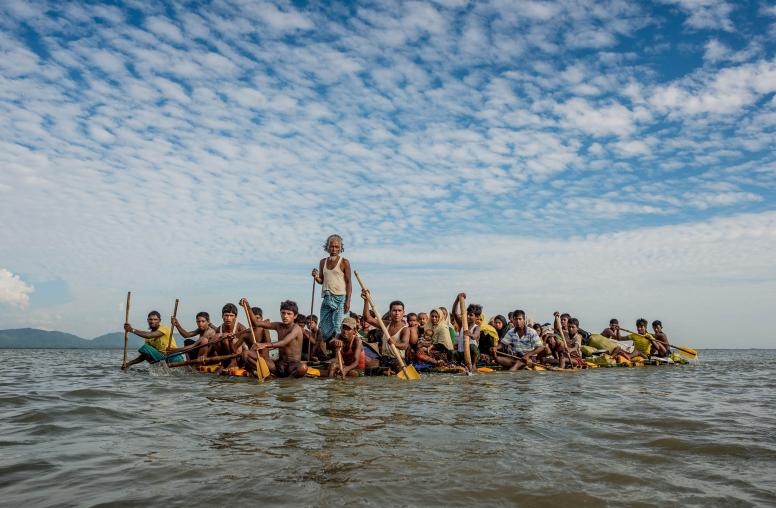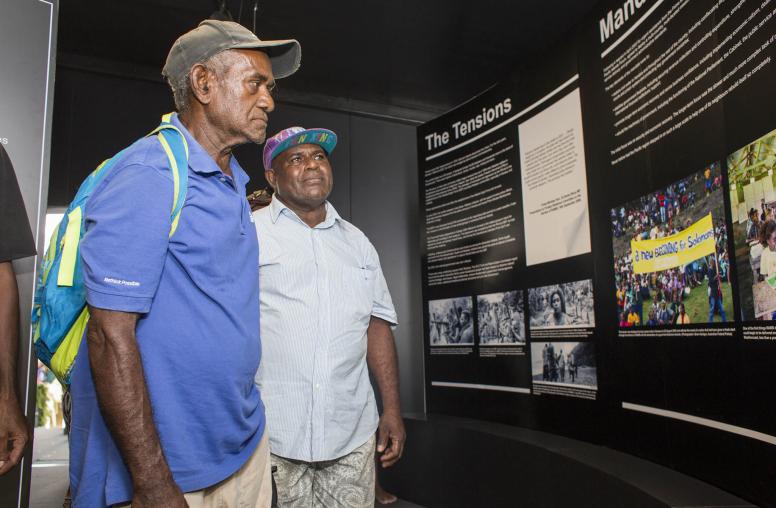Peaceworks
Publications
Articles, publications, books, tools and multimedia features from the U.S. Institute of Peace provide the latest news, analysis, research findings, practitioner guides and reports, all related to the conflict zones and issues that are at the center of the Institute’s work to prevent and reduce violent conflict.

What Does the Xi-Ma Meeting Mean for Cross-Strait Relations?
Chinese leader Xi Jinping held talks on April 10 with former Taiwan president Ma Ying-Jeou in Beijing’s Great Hall of the People. The meeting came as tensions between Beijing and Taipei remain high, particularly following Taiwan’s election at the beginning of the year, which saw pro-sovereignty candidate William Lai Ching-te win a historic third term for the ruling Democratic Progressive Party (DPP). Ma served as president from 2008 to 2016, is a member of the Nationalist (KMT) party and is known for advocating closer ties with mainland China.

Why Counterterrorism in Afghanistan and Pakistan Still Matters
From wars in Ukraine and the Middle East to rising tensions in the South China Sea, there is no shortage of crises to occupy the time and attention of U.S. policymakers. But three years after the U.S. withdrawal from Afghanistan, the threat of terrorism emanating from South Asia remains strong and policymakers need to be more vigilant. Indeed, at the end of March, an Afghanistan-based affiliate of ISIS launched a devastating attack outside of Moscow, killing over 140 people.

Rohingya Face Fresh Uncertainty in Myanmar
An uptick in the conflict between Myanmar’s military and an ethnic armed organization in western Rakhine State is raising new concerns about the fate of the Rohingya population. In 2017, over 800,000 Rohingya, a mostly Muslim community, fled to Bangladesh to escape genocide committed against them by members of Myanmar’s military in Rakhine State. Now, emboldened by the military’s increasing vulnerability in the face of an armed resistance, the Arakan Army has vowed to push aggressively to expand its territorial and administrative control across the state. But its leaders have been unclear about their plans to address the Rohingya issue.

Stability in West Africa: Working With Nigeria’s State Governments
As coups and other setbacks have stymied military-led efforts to stem upheavals in West Africa and the Sahel, a potent new constituency of leaders has just gathered to plan nonviolent strategies to stabilize their own core area of the region: northern Nigeria. In West Africa’s demographic giant, economic crisis is exacerbating intercommunal conflicts, crime and other violence — and Nigeria’s federalism gives vital roles to its states in addressing roots of these problems. Ten recently elected state governors gathered in Washington last month with peacebuilding and development experts, business leaders and senior U.S. officials; they resolved to strengthen and coordinate state-level stabilization strategies — an initiative that international partners should support.

Dean Cheng on China’s New Military Force
China’s military structure is not prone to change. But in a shocking move, Chinese leader Xi Jinping recently established a new military entity focused on “information dominance” in future wars, with many observers “left wondering what this is going to mean and why they did it,” says USIP’s Dean Cheng.

It’s Not Too Late for Solomon Islands’ Truth and Reconciliation Commission
Established in 2008, the Solomon Islands Truth and Reconciliation Commission (TRC) was tasked with investigating the country’s civil conflict that killed 200 people and displaced more than 20,000 others between 1998 and 2003. The commission was the first of its kind in the Pacific Islands region, and its proponents hoped it could heal people’s lasting trauma by addressing human rights violations, promoting national unity and fostering reconciliation.

Despite Daunting Economic Headwinds, Afghan Private Sector Shows Signs of Life
Three years after the Taliban took control of Afghanistan, the country’s economy remains in a dismal state marked by depression-level price deflation, high unemployment and a collapse of GDP. Still, while the bad news for Afghans is well known, less visible are some green shoots in the country’s private sector that, if properly encouraged, could mitigate the situation. These range from small business activity to Taliban plans for major projects to the potential for an uptick in investment. Clearly nothing in those developments can stimulate a strong economic revival.

Will Solomon Islands' New Leader Bring It Closer to China?
On April 17, Solomon Islands held an election that was closely watched by China and the United States and its partners. In the following weeks, members of parliament (MPs) jockeyed to form a governing coalition, finally electing Jeremiah Manele as prime minister on May 2.

In Russia’s Hybrid War on Europe, Moldova’s Critical Next 15 Months
A rising risk in southeast Europe is Russia’s sharpening of conflicts to block Moldova’s effort to join the European Union. The Kremlin is escalating a hybrid campaign to manipulate three Moldovan elections over the next 15 months. Moscow last week hosted the formation of a political bloc around its primary Moldovan ally, a fugitive billionaire convicted of the country’s worst-ever bank fraud — and sent a startling flood of pre-election cash that police seized at Moldova’s main airport. This is a critical season for Moldova’s democratic allies to help it defeat Russian disinformation and election subversion.

Ce dont Haïti a besoin de la part des États-Unis et de la communauté internationale
Malgré les distractions évidentes provenant des crises dans d'autres coins du monde, le désastre qui s'aggrave en Haïti attire tardivement une attention internationale plus large. Les critiques de la politique américaine envers Haïti émergent de tous les coins du spectre politique, et il y a beaucoup à critiquer, notamment si l'on étend la période à l'expérience politique d'Haïti depuis la fin des dictatures Duvalier dans les années 1980. Mais ici et maintenant, ces évaluations minimisent les chances déjà minces des efforts de médiation gérés par la Communauté des Caraïbes (CARICOM), à partir desquels a émergé le Conseil présidentiel d'Haïti, une structure de gouvernance transitoire pour le pays.